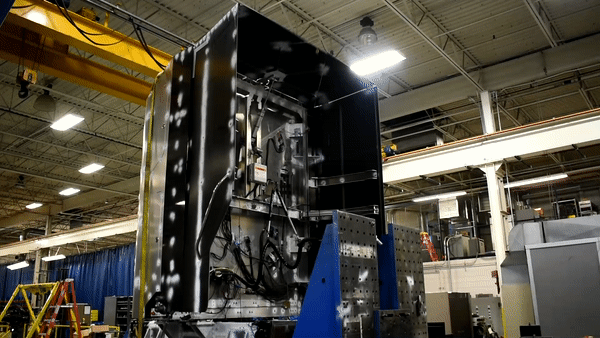
TruckLabs’ Best Practice Approach to Continuous Improvement Helps TruckWings Raise the Bar on Over the Road Durability
As an engineering forward company, one of the best things about TruckLabs is our ability to respond fast and effectively to real-time data, results, and customer feedback. We are constantly incorporating learnings from our largest customers, our proprietary telematics data from over 500 million OTR miles, and laboratory testing into the design and operation of TruckWings.
In this blog post, we will look at the strategies and methods that have made TruckWings one of the most reliable and cost-effective solutions for reducing fuel spend for Class 8 fleets.
Learning From Smart Hardware
The TruckWings design has consistently evolved since its inception to improve durability and reduce maintenance. A big part of the progress we have made can be attributed to implementing lessons learned from our telematics data. The TruckLabs telematics system collects and analyzes real-time data on the performance and usage of TruckWings. Our engineering team leverages this data to prioritize product development efforts focused on product durability and reduced maintenance costs for our customers.
One recent initiative focused on increasing the precision of our Trailer Distance Sensor across multiple trailer types. Our engineering team learned from our telematics data that tuning the distance sensor would further optimize TruckWings open %, and in turn, save more fuel for our customers. We upgraded the placement of the Trailer Distance Sensor across a broader range of trailer types, allowing TruckWings to be more effective at saving fuel. Because we had real-time data, we were able to make these changes quickly in a test environment and then rollout to a larger population of trucks.
Full telemetry has enabled the TruckLabs team to identify the root cause of customer on-road events by replaying the time, location, vehicle speed, TruckWing state, and more – giving us a quicker path to continuous improvement.
Fleet-driven Feedback Loop
TruckWings have become even more rugged by incorporating feedback from stakeholders in the trucking industry. Talking to drivers, technicians, and fleet managers, we have gained valuable insights into how our TruckWings units are being used and how we can build an even better product.
Drivers have provided feedback on the ease of use and visibility of the TruckWings system, while technicians have pointed out opportunities for streamlining the maintenance process. By listening to our customers, we have made improvements that had a significant impact for our customers.
For example, in the Freightliner Cascadia Day Cab, a driver noticed wind noise coming from the TruckWings. After analyzing the issue, a seal was added between the leading edge of the TruckWings and the cab side extender to block the air recirculating behind the cab.This stopped the whistling and further stabilized the panels.
Our engineers have also been focused on ensuring TruckWings are quiet when opening and closing so that our sleeper team customers aren’t disturbed while sleeping. In order to achieve this, we use soft-close pneumatic actuators that slow down at the limit of their travel, like a kitchen cabinet drawer—allowing TruckWings to open and close quietly. Our drivers often comment on how quiet TruckWings are on the road.
The TruckLabs team is passionate about our customers and we listen to their reactions, comments, and praise about the overall experience with TruckWings. Incorporating customer feedback has been essential in continuously upgrading the TruckWings design and deployment.
Rugged Materials for Real-world Use
One of the critical features of the TruckWings design is its use of resilient materials that can withstand the rigors of millions of miles of over-the-road trucking. As active aerodynamic devices, TruckWings are subjected to various forces and stressors as they deploy between the tractor and trailer of Class 8 trucks. To ensure that TruckWings not only stand up to these forces but overperform, we have used highly durable materials that defy the intensity of these forces and minimize any damage that may occur.
For example, the TruckWings are mounted to the back wall of the tractor using redundant, high-strength brackets that can withstand the weight of the system and the aerodynamic forces exerted during deployment. Additionally, the TruckWings panels are made from rugged, weather-resistant, fiber-reinforced plastic that can withstand the harsh conditions encountered on the road regardless of weather conditions. We have trucks running throughout the year in the cold of northern Canada and the heat of the SouthWestern United States. Another area of focus has been introducing flexible panel end treatments that further reduce edge-case impacts on the side panels. Overall, using high-quality, rugged materials in the TruckWings design has been imperative to ensure that the system performs to the highest standards and delivers the fuel savings that trucking fleets expect with very little maintenance and repair.
Industry-standard accelerated life cycle testing helps validation
Over-the-road trucking is full of harsh conditions, and we have accepted the challenge to ensure that the TruckWings design can stand up to the rigors on the road and in the lab. They are designed to last the life of your tractor while only requiring minimal maintenance on easily serviceable components on the back of the cab.
Beyond over-the-road testing, we have also subjected TruckWings to rigorous laboratory testing.
To significantly extend the service intervals on TruckWings, we designed a new serviceable bushing that introduced a bearing cartridge. We created a cyclic durability test that accelerates the wear on bushings to validate the system, gather data and make any necessary design changes. Lab testing is ongoing, with 210k deployment cycles completed (an average truck will deploy 10k a year).
This repeatable testing method has been beneficial in identifying potential issues with the design and finding solutions to address them before we deploy updates in the field. Laboratory testing gives TruckLabs the data necessary to quickly promote design changes, allowing TruckWings to perform at its highest standards.



